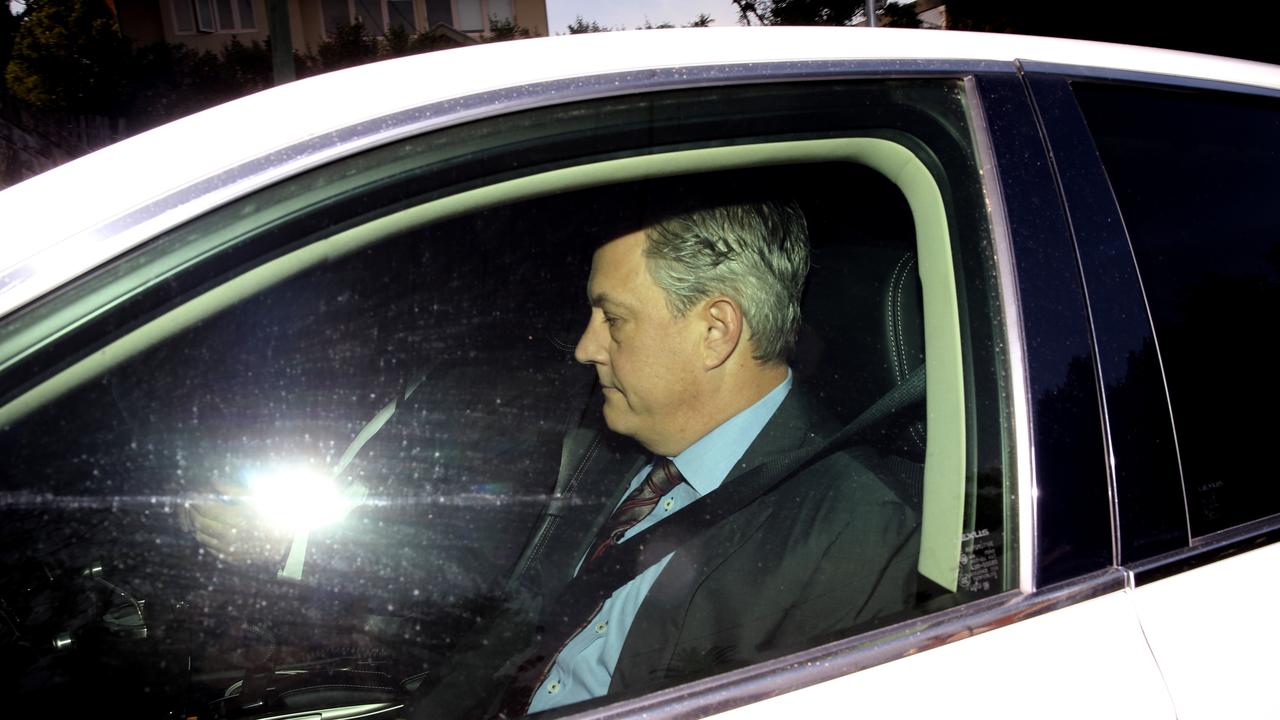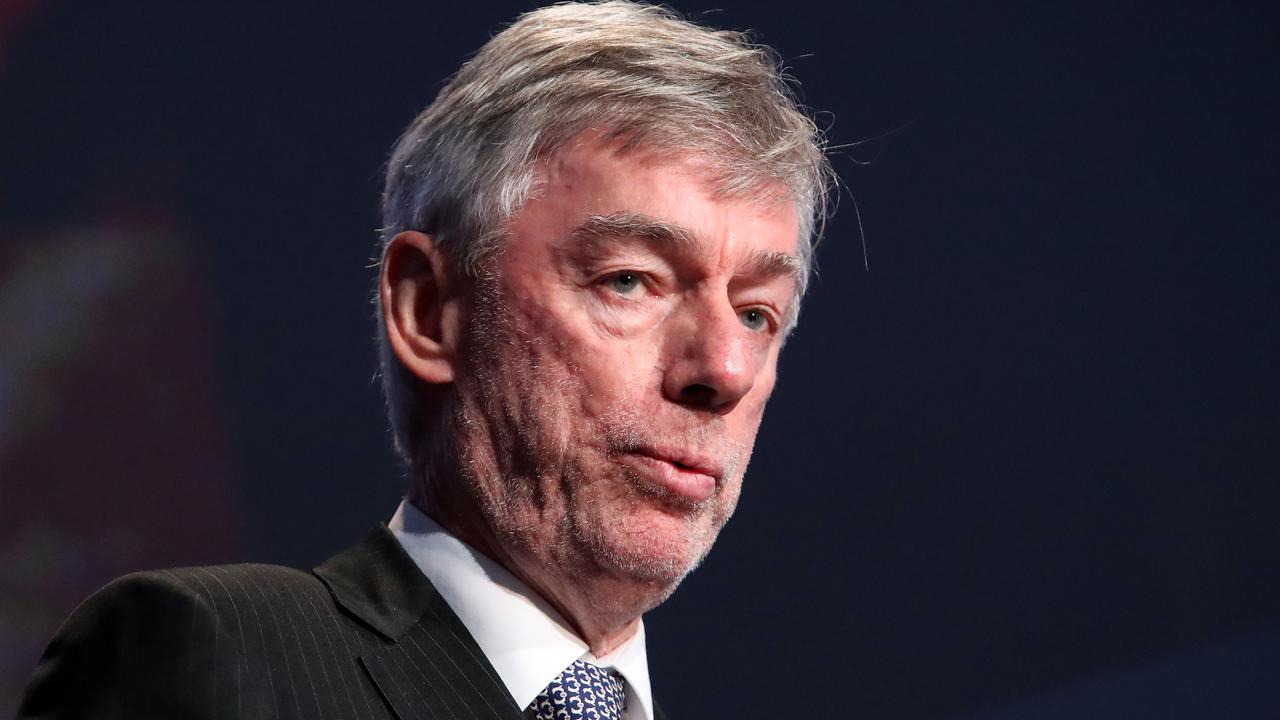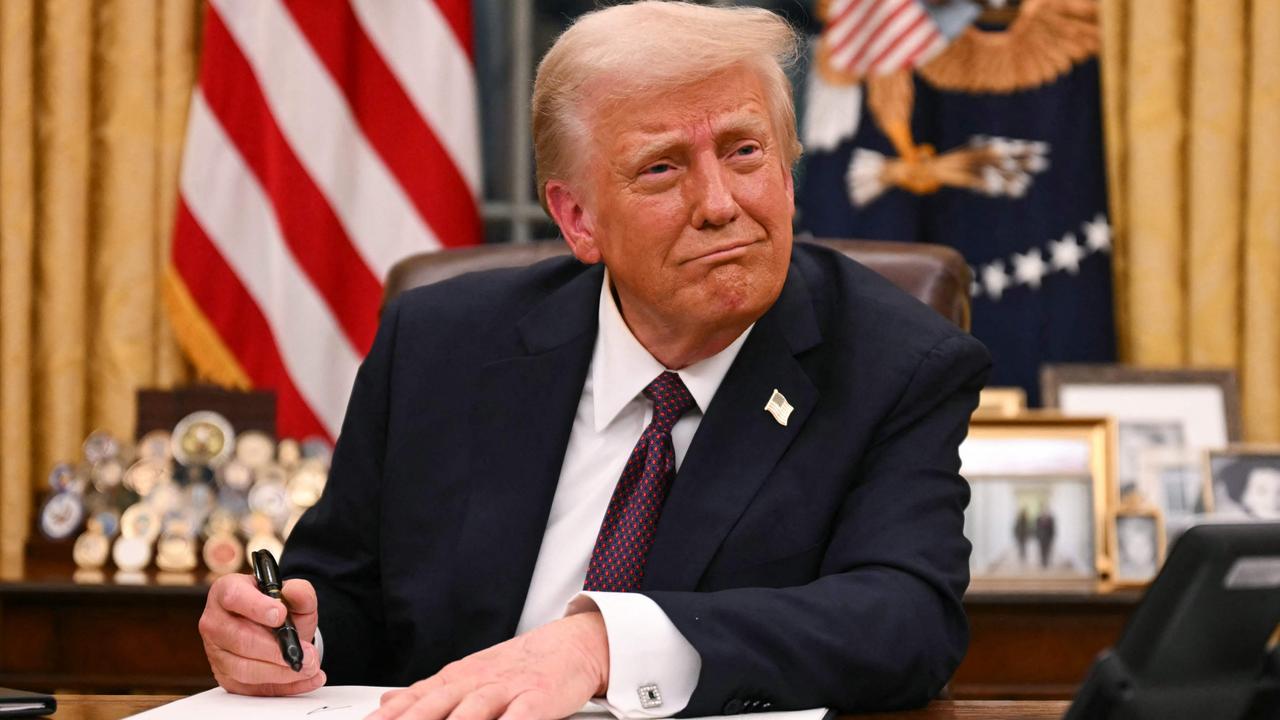Westpac CEO pushed out amid child exploitation scandal
Brian Hartzer has become the first casualty of the money laundering and child exploitation scandal that has engulfed the major bank.
Westpac chief executive officer Brian Hartzer has been pushed out as the major lender battles an investigation by Australia’s financial intelligence agency over a money laundering and child exploitation scandal.
The bank’s leader will step down on December 2 with a hefty golden handshake of 12 months’ pay, which amounts to $2.7 million.
Westpac chairman Lindsay Maxsted said this morning the board accepted the “gravity” of the issues raised by AUSTRAC.
RELATED: Day of reckoning finally arrives for Australia’s major banks
RELATED: Money laundering and counter-terrorism laws investigated at Westpac
“As was appropriate, we sought feedback from all our stakeholders including shareholders and having done so it became clear that board and management changes were in the best interest of the bank,” he said in a statement released to the Australian Securities Exchange.
Mr Hartzer said he was “ultimately accountable for everything that happens at the bank”.
“It is clear that we have fallen well short of what the community expects of us, and we expect of ourselves,” he said in a statement issued by Westpac.
It comes after a report in The Australian revealed Mr Hartzer attempted to lobby support from Westpac’s senior leaders by saying the scandal “was not playing out as a high street issue”.
“We all read the Fin (The Australian Financial Review) and The Australian, and we all read that and think the world is ending,” he said, according to the newspaper’s two sources.
“But actually for people in mainstream Australia going about their daily lives, this is not a major issue so we don’t need to overcook this.’’
Mr Maxsted will also bring forward his retirement to early 2020, while Director Ewen Crouch — who is in charge of risk and compliance — will not stand for re-election at the Westpac annual general meeting on December 12.
AUSTRAC chief executive Nicole Rose told reporters last Wednesday the major lender failed to report more than 19.5 million international funds transfers over five years.
The transfers amounted to $11 billion, which Ms Rose said resulted in a “significant loss of intelligence” for the financial crimes agency.
“Westpac failed to pass on information about the origin of international funds transfers and keep records as required,” she said.

The most staggering indictment in AUSTRAC’s bid to investigate Westpac was less than $500,000 that a dozen of its customers allegedly paid to the Philippines and South East Asia.
The agency says these types of payments are consistent with transfers made to those who are involved with child exploitation.
“Westpac failed to introduce appropriate detection scenarios to detect known child exploitation typologies, consistent with AUSTRAC guidance and their own risk assessments,” Ms Rose said.
Current chief financial officer Peter King will serve as acting chief executive from December 2 until a new boss is appointed.
Mr Maxsted said the interim chief has been tasked with implementing the Westpac Response Plan in the face of the child exploitation scandal.
“Peter has had a long and distinguished career at Westpac and has been the CFO since 2014,” Mr Maxsted said. “He is the right choice to provide stability and direction to the bank and its
people.
“He is an executive of exceptional integrity who is deeply respected by the market and
the entire Westpac team.”

FACILITATING ‘HORRENDOUS TYPES’ OF CRIME
Attorney-General Christian Porter said the “enormous” number of alleged money laundering breaches by Westpac had the potential to facilitate “the most horrendous crimes”.
“Anyone who breaches money laundering laws and therefore allows money to be laundered, has — just as a matter of fact and common sense — contributed to the facilitating of international and domestic crimes of a variety of types,” he told 6PR on Thursday.
“The reason people launder money is to hide the profits of crime and criminality and to fund further crime and criminality, which is why we have such strong laws, such strong penalties and why the government takes such an incredibly robust approach to money laundering.”
Investment bank Citi noted in a report last week aimed at predicting the ensuing bloodbath at Westpac how similar scandals had resulted in mass changes to executive teams.
NAB’s chief executive and chairman followed most of its management team out the door after a foreign exchange trading furore in 2004 cost the bank $360 million.
CBA chief executive Ian Narev stepped down amid significant management and board changes at the major lender after its AUSTRAC settlement related to anti-money laundering and terror-financing charges.
The microscope had been fixed on Mr Hartzer who admitted on Wednesday that “the issue of personal accountability is absolutely on the table”.
“I will be personally leading our response to all of these issues,” he told reporters.
“With respect to the specific customer matters that are in the detailed statement of claim, the first time I saw them was this morning.”
“I was … utterly horrified at what I read, and am absolutely determined to get to the bottom of why on earth this was allowed to persist.”
On Friday, Mr Maxsted said the board was “devastated” by the issues raised by AUSTRAC.
“The notion that any child has been hurt as a result of any failings by Westpac is deeply distressing and we are truly sorry,” he said in a statement. “The board unreservedly apologises.
“We have already made significant improvements, including reviewing and taking action on all of the individual customers mentioned by AUSTRAC and establishing a multi-layered review.
“We have also commenced discussions with relevant community groups about any further steps we can take to fight child exploitation.”
Is the major scandal really not “a high street issue”? Comment below or get in touch | @James_P_Hall | james.hall1@news.com.au




